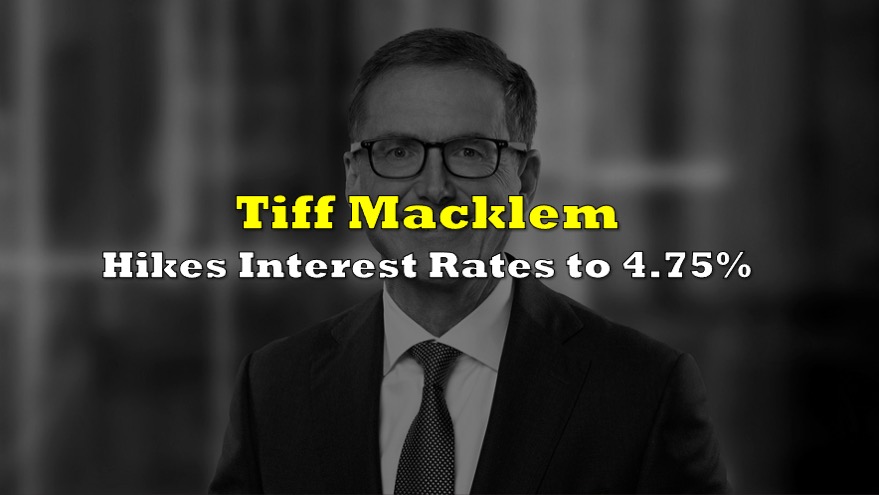Private mortgage lenders in the GTA are beginning to feel the heat of rising interest rates. So much so, in fact, that borrowers with private mortgages who cannot keep up with their payments are being forced to sell their homes— a legal term referred to as the Power of Sale process.
The seven consecutive rate hikes in the past year have sparked concerns that an increasing number of homeowners are falling behind on their mortgages. Although mortgage delinquency rates are still relatively low, it takes months before the lagging indicator starts flashing red. “Whatever you see happening right now today is something that started nine months ago,” and “this is just the very beginning of the problem; we’re not going to see the real impact of the problem until May, June, July,” explained Toronto mortgage broker Ron Butler.
Unlike foreclosures— which became synonymous with the the 2008 financial crisis, during a power of sale, the mortgage borrower still owns their home, but the private lender of their mortgage will step in to force a sale of the property, usually in circumstances where the client is unable to continue making mortgage payments.
According to Butler, most of these cases involve Mortgage Investment Corporations (MICs), which compile funds from investors and lend it to real estate borrowers. However given that interest rates rose from near-zero to 4.25% in less than a year, some of these lenders are beginning to panic. “The combination of that and the drop in house values in Ontario has motivated many of the private lender organizations, or simply individuals who do private lending, to say, ‘I gotta call in the mortgage’,” added Butler.
He explains that the majority of such mortgages have a duration of one year, and if the lender is unable to pay the full balance on the loan on the renewal date, “they’re just simply saying, ‘well we have to get the money back, so we’re going to put you into power of sale.’” Likewise, homeowners who hold a mortgage from a ‘B lender’ are also facing a crisis if they’re up for renewal, as they already face higher interest rates to begin with since they didn’t qualify for mortgages from major banks. In such instances, “the increase in payment was so substantial as to become almost unmanageable,” Butler added.
Why Are So Many Power of Sale Houses Soon To Come to Market?
— Ron Butler (@ronmortgageguy) January 16, 2023
Last Friday there was a flurry of publicity about Ontario homes entering or being in some stage of the Power of Sale process which most people know as Foreclosure although that is actually a separate legal action
2/
Although the high interest rate environment has eased some pressure from Canada’s real estate market, the Bank of Canada likely isn’t quite finished with its tightening cycle. Inflation has shown signs of subsiding over the past several months, but still remains stubbornly high at 6.3%. The unemployment rate, meanwhile, sits at 5.2%, which economists define as full employment. “We’re seeing inflation numbers still very high and we’re still seeing a lot of Canadians well-employed and recession clearly hasn’t hit,” mortgage broker Leah Zlatkin told the Financial Post. “At this point, the Bank of Canada may have no choice but to increase rates again in the new year.”
The combination of rising interest rates and persistent inflation is also forcing some mortgage holders to hit their trigger rate. According to a recent Bank of Canada analysis, about half of borrowers with variable-rate mortgages have hit their trigger rate, meaning their entire monthly payment only covers interest charges, and not the principal amount. However, the crisis likely won’t unravel right away, because most Canadians will default on other payments before defaulting on their homes, such as car loans or credit cards.
“We’ve started to see some increases in delinquencies in those products, especially credit cards, over the last five or six months,” said Butler. “That could be a sign of future difficulties, that Canadians are sort of struggling to keep up with all their payments.”
Information for this briefing was found via the Financial Post, the Toronto Star, the Bank of Canada, and the sources mentioned. The author has no securities or affiliations related to the organizations discussed. Not a recommendation to buy or sell. Always do additional research and consult a professional before purchasing a security. The author holds no licenses.









